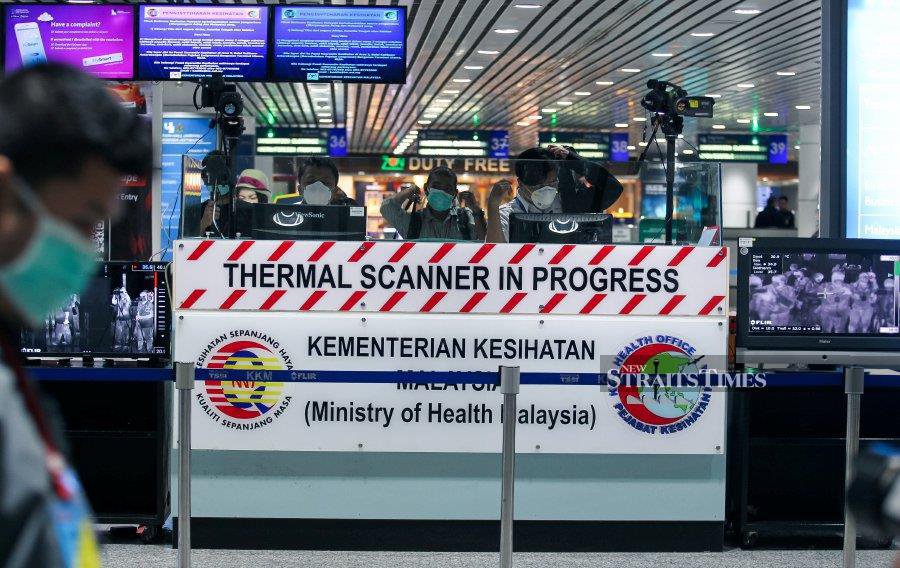KUALA LUMPUR: Legal experts believe that there should be no double standards with regard to punishment meted out to those who violate the mandatory quarantine order in place to stem the spread of Covid-19.
Meting out a lighter punishment to any party, they said, could create the impression of the existence of different laws for different levels of society.
Referring to the case of Plantation Industries and Commodities Minister Datuk Dr Mohd Khairuddin Aman Razali, who was fined RM1,000 for breaking the mandatory 14-day quarantine order after returning from abroad, legal expert Professor Datuk Salleh Buang said the choice of which law to invoke against a citizen was at the discretion of the enforcement authority and not the judicial body.
"When you chose a harsher provision against a citizen but not against a VIP, you created an impression of 'dua darjat' — different laws for different levels of society.
"The double jeopardy rule now saves the minister as he cannot be charged again under another law for the same offence," he said.

Salleh said it was inevitable that the public would express anger on social media over the incident, with many demanding harsher punishment and Khairuddin's resignation.
On Aug 18, Seputeh member of parliament Teresa Kok claimed that Khairuddin had been on an unofficial visit to Turkey from July 3 to 7, but attended Parliament only a week later. This, she said, meant that he had failed to observe the mandatory quarantine period.
Lawyer Lim Wei Jiet said if
an offence was committed under the Prevention and Control of Infectious Diseases Act 1988 (Act 342), enforcement authorities had the option of charging the person under Section 24, whereby upon conviction, a penalty for a first-time offender is up to two years' jail or a fine, or both.
Under Section 25, however, the director-general or any public officer can impose a compound of up to RM1,000.
"The real question is, for the same offence, why were civilian offenders pursued under the Section 24 criminal charge, which carries a much heavier sentence, but the minister was only subjected to a compound of up to RM1,000 under Section 25?"
Lawyer Nizam Bashir said Khairuddin was fined for committing an offence under regulation 11(1) of the Prevention and Control of Infectious Diseases (Measures within Infected Local Areas) (No. 7) Regulations 2020.

Nizam said Regulation 11 provided that on conviction, the offender would be liable to a fine not exceeding RM1,000, or to imprisonment for a term not exceeding six months, or to both.
"The decision to issue a compound may be made by the director-general or the authorised officer according to their discretion.
"However, if there is a prosecution pending in court, the decision to compound may require the consent of the court."
Nizam compared the minister's case to that of Nur Emah Mohamad Hashim, 72, also known as the "pink bracelet lady", who was charged under Section 22(b) for disobeying an order under Section 15(1) under the Prevention and Control of Infectious Diseases Act 1988, which provides for imprisonment of up to two years, or a fine, or both, upon conviction.
"She was convicted of an offence by a court. There was no conviction by a court of law, but merely a compound issued by authorised officers for Khairuddin."
Nizam stressed that public organisations ought to adhere to the parity principle and ensure consistent and transparent sentencing of similar offenders.
"Inconsistency in the sentencing of similar offenders may give rise to a 'justifiable sense of grievance' and that's exactly where we are at this juncture.
"Do note that the parity principle, rather interestingly, does also allow for different sentencing if there are sufficiently different facts that allow for a different conclusion to be made."

Meanwhile, Universiti Putra Malaysia head of Social and Development Sciences Department, Associate Professor Dr Nobaya Ahmad, said the punishment for those who flouted the SOP should be standardised.
Nobaya said Khairuddin's decision to return his salary should not be equated with "resigning" or that it could replace the amount of fine he had to pay equivalent to others in the same position.
She said the public would use the minister's case as a precedent if they were fined higher than RM1,000.
She also said there were precedents in other countries, where accountable ministers would discharge themselves from their duties after committing an offence.
"A person with integrity will accept a more equitable fine as per other flouters and if it will affect his position, should discharge himself from the post."
On Aug 21, Ireland's Dara Calleary resigned from his post as agriculture minister after having spent his night with 80 other people at a golf function when the government had imposed new rules of limiting indoor gathering to six people and outdoor to 15 people.
Ghana's deputy trade minister Carlos Kingsley Ahenkorah and New Zealand's health minister David Clark had also resigned for breaching lockdown or self-isolation rules.





